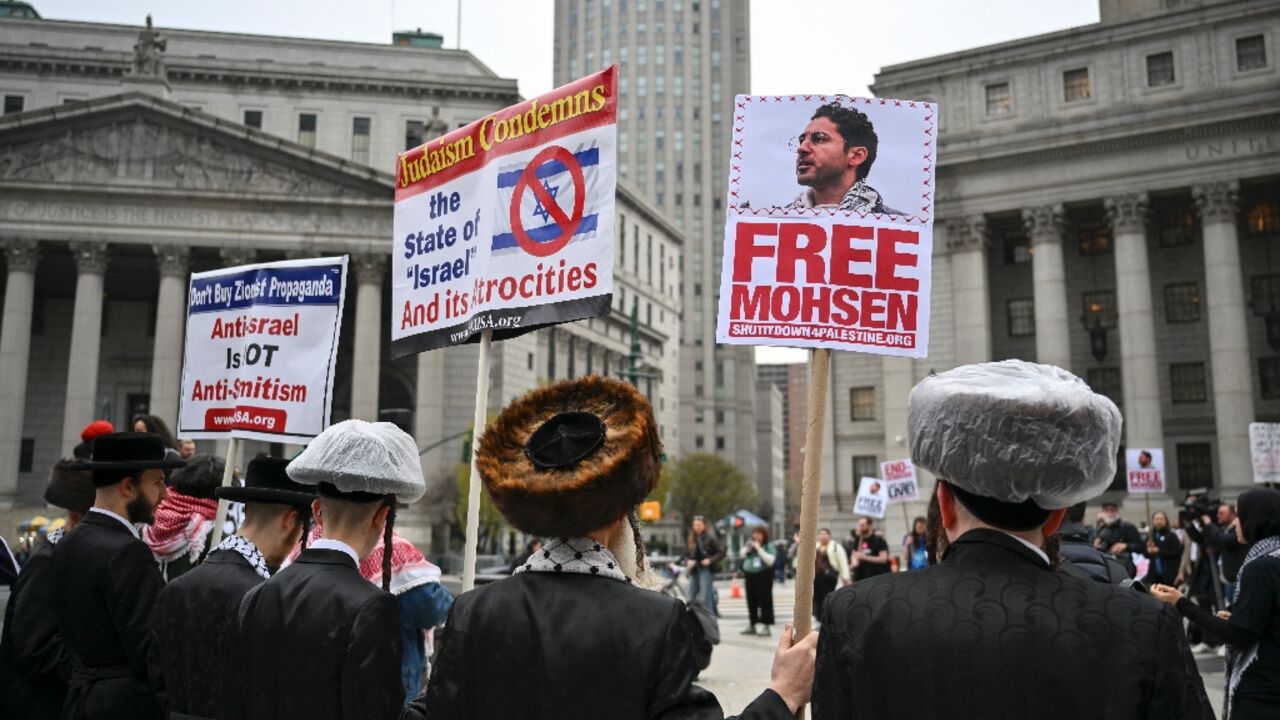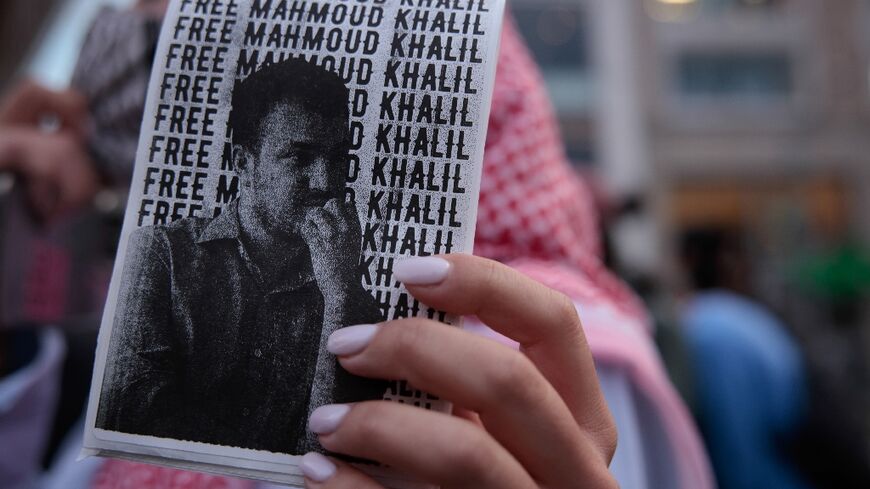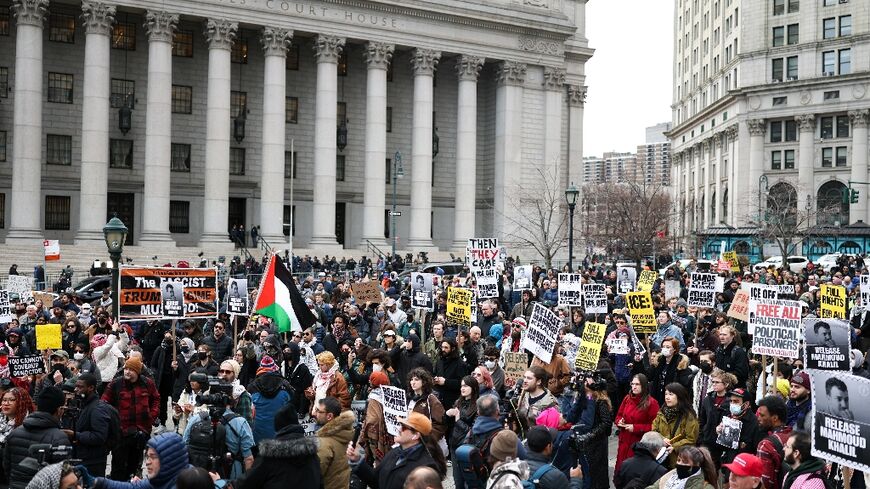Palestinian student detained at US citizenship interview released on bail

Columbia University student Mohsen Mahdawi, who was arrested by US immigration authorities earlier this month at his citizenship interview, expressed defiance Wednesday after a federal judge ordered his release on bail.
Speaking outside a courthouse in Vermont, Mahdawi addressed US President Donald Trump and his government, which has moved to revoke foreign students' visas over their involvement in pro-Palestinian protests.
"I am not afraid of you," Mahdawi said, and then joined the assembled crowd in chanting "no fear."
"If there is no fear. What is it replaced with? Love, love is our way."
Mahdawi, 34, was arrested on April 14 as he was attending an interview to become a US citizen, according to court filings.
A Palestinian born in the occupied West Bank, Mahdawi has been a legal US permanent resident since 2015, was set to graduate next month and planned to attend a Columbia master's program this fall, court filings said.
He is the co-founder of a Palestinian student group at Columbia alongside Mahmoud Khalil, a leader of the movement who Trump has also been trying to expel since his March arrest.
"What did they do to me? They arrested me. What's the reason? Because I raised my voice and I said no to war, yes to peace," Mahdawi said Wednesday.
A judge had previously ordered Mahdawi not to be removed from Vermont, after immigration authorities quickly transferred other students detained under the Trump administration's crackdown to other jurisdictions.
Federal agents had attempted to fly Mahdawi to Louisiana on the day he was arrested, but they were late for the flight, according to court documents.
- 'McCarthyism' -
Khalil on the other hand was transferred to Louisiana shortly after his March 8 arrest, and an immigration judge there ruled earlier this month that he could be deported. His legal challenge remains ongoing.
Mahdawi, in challenging his removal, has accused the Trump administration of violating his constitutional rights to free speech and due process, arguments Judge Geoffrey Crawford in Vermont found convincing.
"Mahdawi has presented sufficient evidence that his speech was protected under the First Amendment," Crawford said in his ruling.
Crawford ordered Mahdawi's release on bail while his broader challenge proceeds, requiring that he remain in Vermont and only travel to New York for "educational purposes or to meet with his lawyers or as otherwise ordered by the court."
Trump and Secretary of State Marco Rubio have accused participants in campus protests across the country last year of supporting the Palestinian armed group Hamas, whose October 7, 2023 attack on Israel sparked the war in Gaza.
Israel launched a punishing offensive in response, reducing most of the enclave to rubble and killing more than 52,000 people there, most of them civilians, according to data the UN considers reliable.
Rubio has argued that a rarely used federal law grants him the authority to summarily revoke visas and deport migrants who pose threats to US "foreign policy."
Judge Crawford expressed skepticism that Rubio's application of the law to campus protesters would not violate free speech protections.
"Immigration detention cannot be motivated by a punitive purpose. Nor can it be motivated by the desire to deter others from speaking," he said.
Crawford likened the political climate induced by Trump's crackdown to the anti-communist furor in the early 20th century and 1950s period of McCarthyism.
Trump has launched an assault on US universities over the nationwide protests last year against Israel's conduct in the Gaza war.
The administration also claims that universities have failed to address anti-Semitism on campus, and has moved to freeze or revoke billions of dollars in federal funding from institutions including Columbia and Harvard.
Legal challenges to the Trump administration's actions, including Mahdawi's case, may ultimately end up at the Supreme Court.


